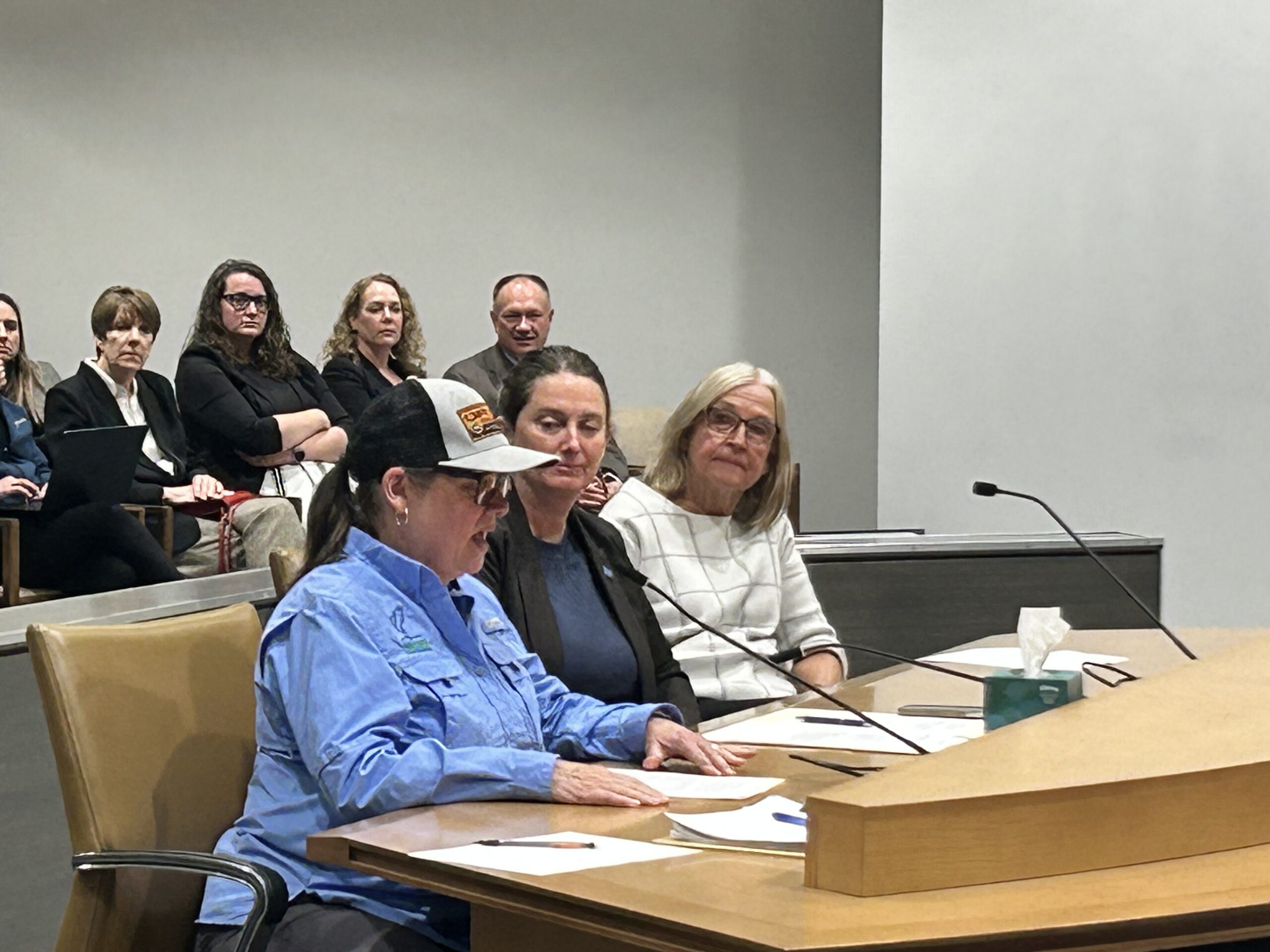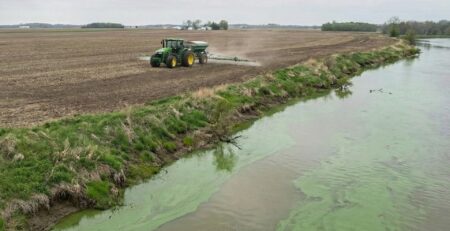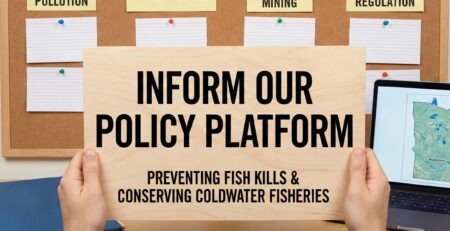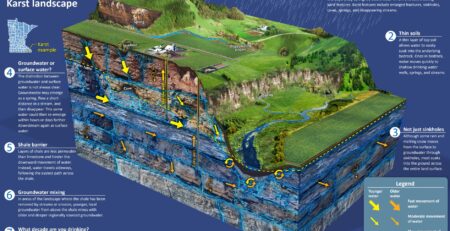2025 Legislative Session Recap
Legislative session was more a game of defense, rather than much momentum forward this year. In general we held the line on our priority issues and were happy that so many of you showed up to attend rallies and hearings, and in submitting letters of concern to your elected officials. This session included several opportunities to defend or support our identified priority issues through the introduction of bills whose outcomes would significantly impact the water quality of trout streams.
Significant bills and their status:
Public Waters Definition- PROPOSED CHANGES DEFEATED
The Senate Environment Policy bill (SF 2781) contained a provision (Ar1. Sec. 15) that would make which waterways are protected under state law less clear by repealing the clarification of Public Waters adopted last year. This repeal would most certainly have resulted in unnecessary ambiguity and lawsuits.
In 2024, the Minnesota Legislature adopted language to provide clarity and reinforce DNR’s longstanding interpretation that a specific waterway could be a public water even if it was not listed on the Public Waters Inventory. The language reinforces the DNR’s and Court’s interpretation and affirms that it is the statutory definition that defines the scope of the State’s jurisdiction over public waters.
Delisting Little Rock Creek as Trout Stream- PROPOSED CHANGES DEFEATED
SF1816/HF184 proposed delisting Little Rock Creek, Morrison County Little Rock Creek as a trout stream and trout stocking in the stream prohibition requirement provision.
Trout stream designation provides a level of protection important for maintaining and improving conditions on a stream. Little Rock Creek has in part been impacted by water diversion over the years and this bill would have eliminated any protections that have been put in place to address the problem.
Neonic treated seed- INFORMATIONAL HEARING
Minnesota Trout Unlimited members joined an informational hearing on SF3083, a bill to regulate neonic treated seeds. In an informational hearing votes, amendments, or other actions aren’t taken on bills, but they are an excellent way to demonstrate support, connect with others that care, provide education, and lay the foundation for next year’s legislative session. We had a great crew of MNTU members show up in support, a number of letters of written testimony submitted, and MNTU member Monta Hayner provided testimony.
Data Center Bills- MIXED OUTCOME; HF 16 PASSED
There were several bills before the Minnesota legislature this year that proposed to exempt all data centers from critical environmental laws and extend our existing generous sales tax exemptions to the largest data centers. These actions would potentially have major potential impacts on coldwater trout habitats from the pumping of groundwater for data center cooling purposes. Groundwater springs are the lifeblood of trout streams and high-volume groundwater withdrawals can lower water tables, reduce stream flows, and elevate water temperatures, which are all detrimental to trout populations that require cold, oxygen-rich waters to thrive.
A standalone bill, HF 16, passed this session. The new law:
-requires preapplication evaluation of water use by the DNR of data center projects that propose to use more than 100 million gallons of water per year;
-sets conditions for DNR issuance of water permits, including requiring DNR to ensure that technologies or measure that promote water conservation, efficient water use, and watershed health are reasonably considered, and directing DNR to require aquifer tests as needed
-establishes annual fees linked to a large-scale data center’s peak electricity demand of between $2 million and $5 million;
-extends the state’s sales tax exemption for software and information technology equipment to large-scale data centers to 35 years;
-includes large-scale data centers in the state’s solar energy standards
-exempts large-scale data centers from requirements under an energy conservation optimization plan;
-requires large-scale data centers to attain certification under one ore more sustainable design or green building standards; and
-requires data center inquiries be referred to DEED.
Boundary Waters Protection– FEDERAL PROVISIONS REMOVED
The Senate remove a provision in the Federal Budget reconciliation bill that would have paved the way for sulfide ore copper mining in the Boundary Waters watershed.
AGENCY ADVOCACY
We continue to look for ways to address the ongoing issue of nitrate contamination in Minnesota outside of legislative means. We know that current state rules governing fertilizer application and manure management are not working well enough to prevent serious harm to trout streams and trout anglers. In January, MNTU joined the Minnesota Center for Environmental Advocacy (MCEA) and the Minnesota Well Owners Association (MNWOO) in a lawsuit against the Minnesota Pollution Control Agency and Minnesota Department of Agriculture to compel them to do a better job of protecting coldwater ecosystems from harm caused by high nitrate levels and fish kills. In addition, we worked with partners and members to develop comments for the MPCA on the Feedlot Rule in July. Over 250 individuals submitted comments and in our initial review close to 10% of the comments included concern for trout streams and aquatic ecosystems. These comments will be used to inform the writing of the Feedlot Rule, as well as development of the SONAR which will need to address the need and reasonableness amendments if they are added, persons affected by the rule and the economic impacts of the rule.




